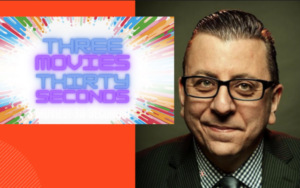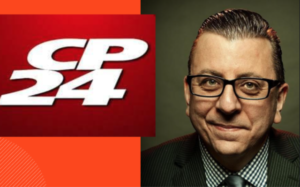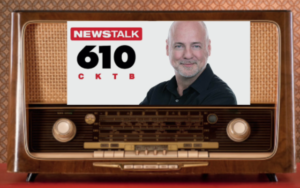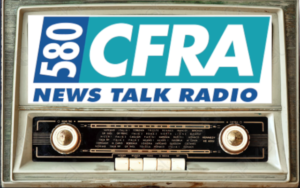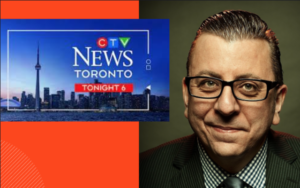Posts Tagged ‘Christian Bale’
Sunday, January 8th, 2023
Watch the whole thing HERE
Tags: Abbey Road Studios , Augustus Landor , Ben Whishaw , Celeste , Charlotte Gainsbourg , Christian Bale , Claire Foy , Edgar Allan Poe , Elton John , Frances McDormand , Giles Martin , Gillian Anderson , Harry Lawtey , Harry Melling , If These Walls Could Sing , Jessie Buckley , Jimmy Page , John Williams , Judith Ivey , Kate Bush , Liam Gallagher , Louis Bayard , Lucy Boynton , Mary McCartney , Miriam Toews , mystery thriller film , Noel Gallagher , Paul McCartney , Pink Floyd , Robert Duvall , Rooney Mara , Sarah Polley , Scott Cooper , Shirley Bassey , Simon McBurney , The Pale Blue Eye , Timothy Spall , Toby Jones , United States Military Academy , Women Talking Film Review | Comments Off on RICHARD’S CTV NEWSCHANNEL REVIEWS FOR JAN 08 WITH Sean Leathong.
Saturday, January 7th, 2023
Watch the whole thing HERE
Tags: Abbey Road Studios , Augustus Landor , Ben Whishaw , Celeste , Charlotte Gainsbourg , Christian Bale , Claire Foy , Edgar Allan Poe , Elton John , Frances McDormand , Giles Martin , Gillian Anderson , Harry Lawtey , Harry Melling , If These Walls Could Sing , Jessie Buckley , Jimmy Page , John Williams , Judith Ivey , Kate Bush , Liam Gallagher , Louis Bayard , Lucy Boynton , Mary McCartney , Miriam Toews , mystery thriller film , Noel Gallagher , Paul McCartney , Pink Floyd , Robert Duvall , Rooney Mara , Sarah Polley , Scott Cooper , Shirley Bassey , Simon McBurney , The Pale Blue Eye , Timothy Spall , Toby Jones , United States Military Academy , Women Talking Film Review | Comments Off on YOU TUBE: THREE MOVIES/THIRTY SECONDS! FAST REVIEWS FOR BUSY PEOPLE!
Friday, January 6th, 2023
Watch the whole thing HERE
Tags: Abbey Road Studios , Augustus Landor , Ben Whishaw , Celeste , Charlotte Gainsbourg , Christian Bale , Claire Foy , Edgar Allan Poe , Elton John , Frances McDormand , Giles Martin , Gillian Anderson , Harry Lawtey , Harry Melling , If These Walls Could Sing , Jessie Buckley , Jimmy Page , John Williams , Judith Ivey , Kate Bush , Liam Gallagher , Louis Bayard , Lucy Boynton , Mary McCartney , Miriam Toews , mystery thriller film , Noel Gallagher , Paul McCartney , Pink Floyd , Robert Duvall , Rooney Mara , Sarah Polley , Scott Cooper , Shirley Bassey , Simon McBurney , The Pale Blue Eye , Timothy Spall , Toby Jones , United States Military Academy , Women Talking Film Review | Comments Off on RICHARD’S WEEKEND MOVIE REVIEWS FROM CP24! FRIDAY JAN 06, 2023.
Friday, January 6th, 2023
Listen to the whole thing HERE
Tags: Abbey Road Studios , Augustus Landor , Ben Whishaw , Celeste , Charlotte Gainsbourg , Christian Bale , Claire Foy , Edgar Allan Poe , Elton John , Frances McDormand , Giles Martin , Gillian Anderson , Harry Lawtey , Harry Melling , If These Walls Could Sing , Jessie Buckley , Jimmy Page , John Williams , Judith Ivey , Kate Bush , Liam Gallagher , Louis Bayard , Lucy Boynton , Mary McCartney , Miriam Toews , mystery thriller film , Noel Gallagher , Paul McCartney , Pink Floyd , Robert Duvall , Rooney Mara , Sarah Polley , Scott Cooper , Shirley Bassey , Simon McBurney , The Pale Blue Eye , Timothy Spall , Toby Jones , United States Military Academy , Women Talking Film Review | Comments Off on CKTB NIAGARA REGION: THE TIM DENIS SHOW WITH RICHARD CROUSE ON MOVIES!
Friday, January 6th, 2023
Listen to the whole thing HERE
Tags: Abbey Road Studios , Augustus Landor , Ben Whishaw , Celeste , Charlotte Gainsbourg , Christian Bale , Claire Foy , Edgar Allan Poe , Elton John , Frances McDormand , Giles Martin , Gillian Anderson , Harry Lawtey , Harry Melling , If These Walls Could Sing , Jessie Buckley , Jimmy Page , John Williams , Judith Ivey , Kate Bush , Liam Gallagher , Louis Bayard , Lucy Boynton , Mary McCartney , Miriam Toews , mystery thriller film , Noel Gallagher , Paul McCartney , Pink Floyd , Robert Duvall , Rooney Mara , Sarah Polley , Scott Cooper , Shirley Bassey , Simon McBurney , The Pale Blue Eye , Timothy Spall , Toby Jones , United States Military Academy , Women Talking NewsTalk 1010 | Comments Off on 1290 CJBK IN LONDON: KEN & MARINA MORNING SHOW MOVIE REVIEWS!
Friday, January 6th, 2023
Listen to the whole thing HERE
Tags: Abbey Road Studios , Augustus Landor , Ben Whishaw , Celeste , Charlotte Gainsbourg , Christian Bale , Claire Foy , Edgar Allan Poe , Elton John , Frances McDormand , Giles Martin , Gillian Anderson , Harry Lawtey , Harry Melling , If These Walls Could Sing , Jessie Buckley , Jimmy Page , John Williams , Judith Ivey , Kate Bush , Liam Gallagher , Louis Bayard , Lucy Boynton , Mary McCartney , Miriam Toews , mystery thriller film , Noel Gallagher , Paul McCartney , Pink Floyd , Robert Duvall , Rooney Mara , Sarah Polley , Scott Cooper , Shirley Bassey , Simon McBurney , The Pale Blue Eye , Timothy Spall , Toby Jones , United States Military Academy , Women Talking NewsTalk 1010 | Comments Off on CFRA IN OTTAWA: THE BILL CARROLL MORNING SHOW MOVIE REVIEWS!
Saturday, October 8th, 2022
Watch the whole thing HERE
Tags: Alessandro Nivola , alongside Andrew Scott , Amsterdam , Andrea Riseborough , Anya Taylor-Joy , Bella Ramsey as the title character , Billie Piper , Catherine Called Birdy , Chris Rock , Christian Bale , comedy thriller film , David O. Russell , Dean-Charles Chapman , Joe Alwyn , John David Washington , Karen Cushman , Lena Dunham , Margot Robbie , Matthias Schoenaerts , medieval comedy , Michael Shannon , Mike Myers , Ralph Ineson , Rami Malek , Robert De Niro , Russell Brand , Taylor Swift , Timothy Olyphant , Zoe Saldana Uncategorized | Comments Off on CTV NEWS AT SIX: NEW MOVIES AND TV SHOWS TO CHECK OUT THIS WEEKEND!
Saturday, October 8th, 2022
Watch the whole thing HERE
Tags: Alessandro Nivola , alongside Andrew Scott , Amsterdam , Andrea Riseborough , Anya Taylor-Joy , Bella Ramsey as the title character , Bernard Waber , Billie Piper , Brett Gelman , Catherine Called Birdy , Chris Rock , Christian Bale , comedy thriller film , Constance Wu , Crocodile , David O. Russell , Dean-Charles Chapman , Javier Bardem , Joe Alwyn , John David Washington , Josh Gordon , Karen Cushman , Lena Dunham , live-action/animated musical comedy , Lyle , Margot Robbie , Matthias Schoenaerts , medieval comedy , Michael Shannon , Mike Myers , Ralph Ineson , Rami Malek , Robert De Niro , Russell Brand , Scoot McNairy , Shawn Mendes , Taylor Swift , The House on East 88th Street , Timothy Olyphant , Will Speck , William Davies , Winslow Fegley , Zoe Saldana Film Review | Comments Off on RICHARD’S WEEKEND MOVIE REVIEWS FROM CP24! FRIDAY OCT 07, 2022.
Friday, October 7th, 2022
Watch the whole thing HERE
Tags: Alessandro Nivola , alongside Andrew Scott , Amsterdam , Andrea Riseborough , Anya Taylor-Joy , Bella Ramsey as the title character , Bernard Waber , Billie Piper , Brett Gelman , Catherine Called Birdy , Chris Rock , Christian Bale , comedy thriller film , Constance Wu , Crocodile , David O. Russell , Dean-Charles Chapman , Javier Bardem , Joe Alwyn , John David Washington , Josh Gordon , Karen Cushman , Lena Dunham , live-action/animated musical comedy , Lyle , Margot Robbie , Matthias Schoenaerts , medieval comedy , Michael Shannon , Mike Myers , Ralph Ineson , Rami Malek , Robert De Niro , Russell Brand , Scoot McNairy , Shawn Mendes , Taylor Swift , The House on East 88th Street , Timothy Olyphant , Will Speck , William Davies , Winslow Fegley , Zoe Saldana Film Review | Comments Off on RICHARD’S CTV NEWSCHANNEL REVIEWS FOR OCTOBER 07 WITH MARCIA MACMILLAN!
 I join CTV NewsChannel anchor Sean Leathong to talk about the drama “Women Talking,” Christian Bale in “The Pale Blue Eye” and the music doc “If These Walls Could Sing.”
I join CTV NewsChannel anchor Sean Leathong to talk about the drama “Women Talking,” Christian Bale in “The Pale Blue Eye” and the music doc “If These Walls Could Sing.”